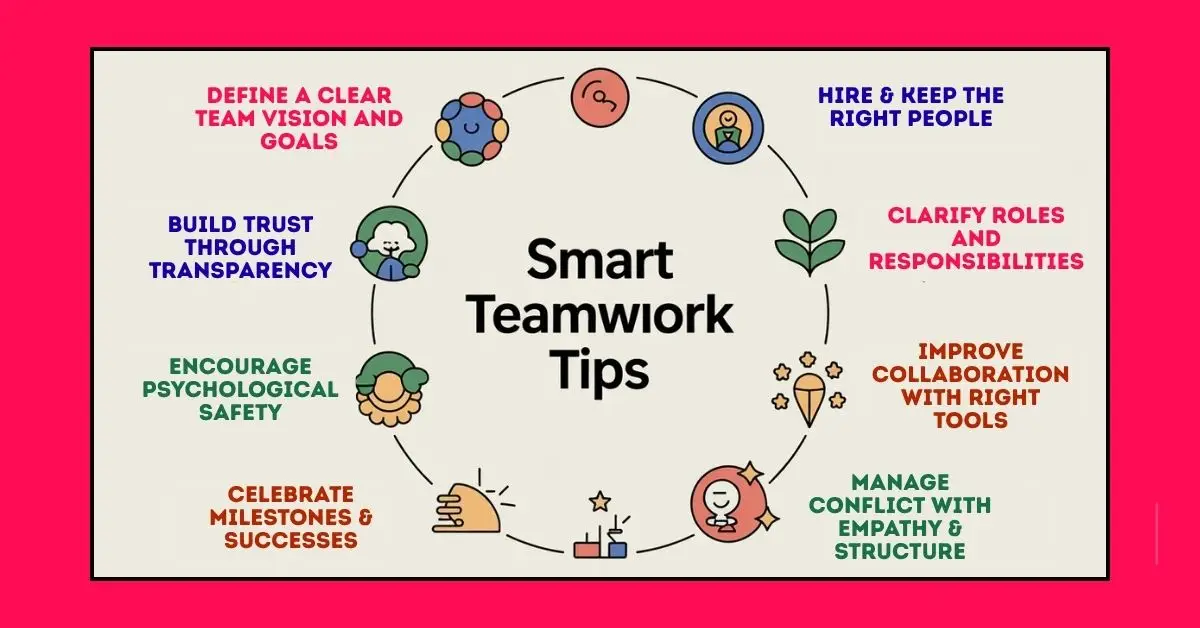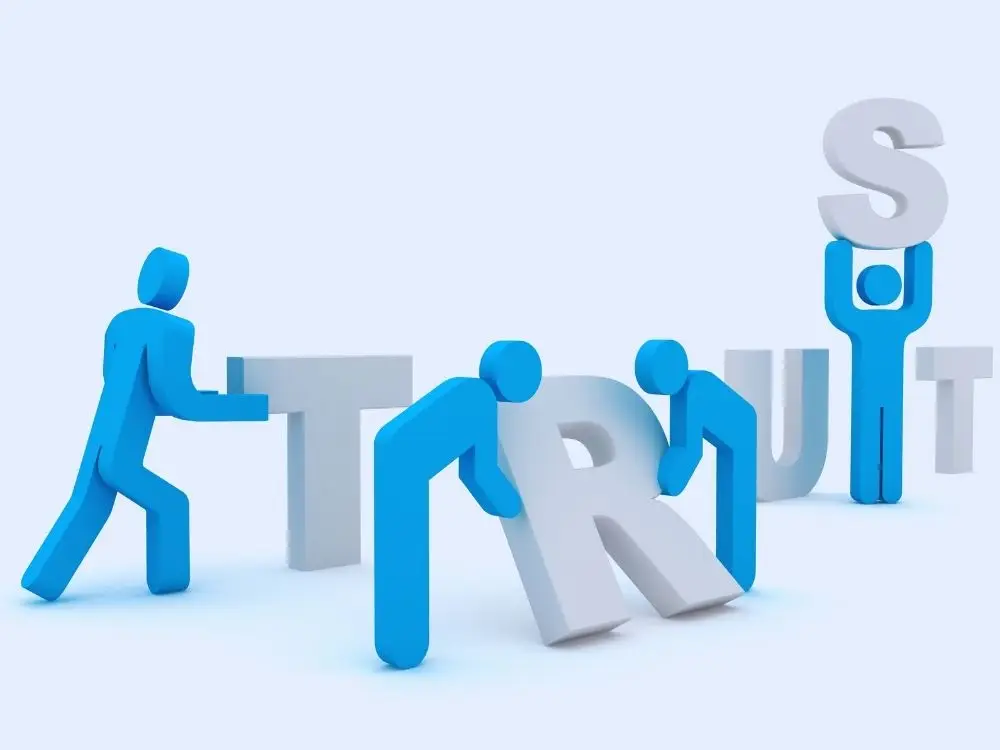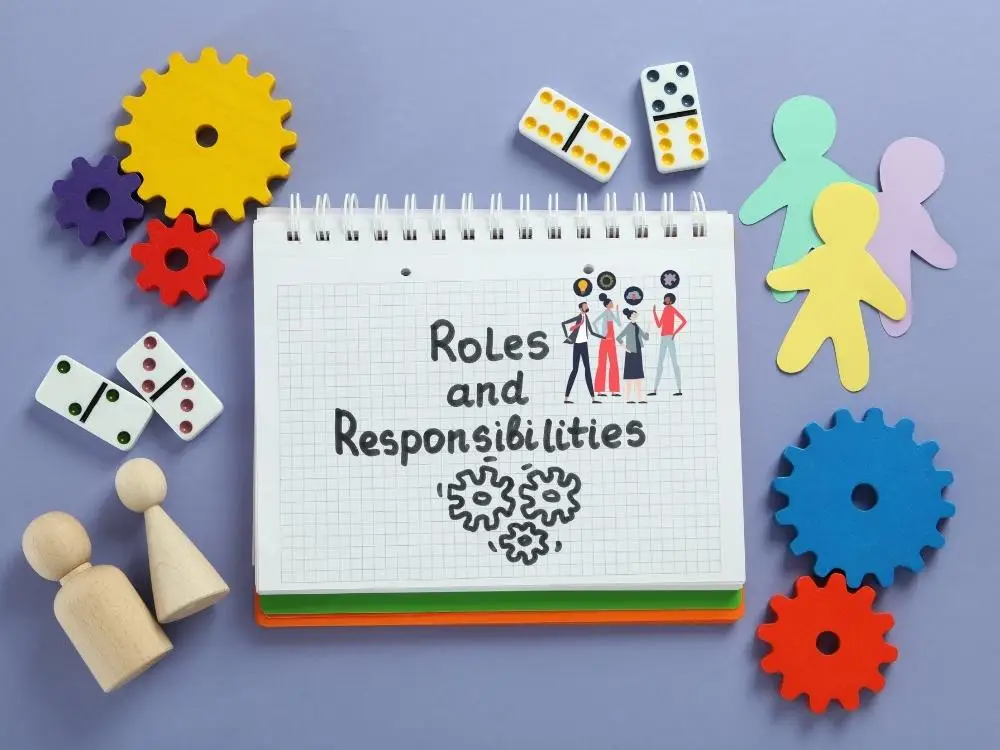
Smart Teamwork Tips to Build a High-Performing Business Team
What separates thriving companies from those that are struggling? The answer usually lies in teamwork. A business can’t succeed alone. Instead, it needs strong teams that do well. When working as a team, great things happen, the performance peaks, ideas flow abundantly, and everyone's motivated enough to give out their best.
However, building a great team isn't about putting together the right people in a room. It takes the right approach and proven strategies. Let's explore smart, real-world teamwork tips that actually work.
Key Takeaways
- Discover proven teamwork tips that turn struggling groups into high-performing teams.
- Learn real solutions to common team challenges based on firsthand business experience.
- Understand what industry experts say about teamwork tips and success.
- Know how to track the team's success without drowning in data.
Define a Clear Team Vision and Goals
Have you ever been in a meeting where everyone is nodding away, but you can just tell that almost no one really knows what is supposed to be achieved? When a team is unaware of its destination, it will be hard to achieve goals. This is why setting clear team goals is important.

What really works is:
- Discuss why it's important: No more talk of "increase sales by 20 percent." Instead, talk about how achieving that random number enables the firm to grow or keeps everybody's job safe.
- Stay simple and visible: Document your key objectives somewhere everyone sees them every day.
- Talk about progress: Set 10 minutes for monthly check-ins. You don't want lengthy sessions every quarter.
- Change if necessary: Sometimes you will have to tweak your goals, and that is fine.
Hire & Keep the Right People
Some people look amazing on paper, but they turn your workplace into a drama zone. We've all worked with someone like that. Meanwhile, there's always that colleague who might not have the fanciest degree but somehow makes everything better just by being there.
Here is where many companies get it wrong. They hire individuals with paper qualifications and fire them when anything goes wrong. Smart teams do the opposite. If you see, a degree isn't always correlated with performance. Some people do their best even without a degree. Also, check these high-paying jobs that don't require a degree.

What to see when finding your dream team:
- Can they work with people? For instance, they might have been asked about a time they had to deal with conflict, or assist a poor performer, etc. This will tell you everything.
- Do they handle change and adapt? Look for people who have changed jobs, learned new skills, or dealt with change that did not break them.
- Do they fit well with the team vibe? You can teach skills, but nothing destroys a team culture faster than personality conflicts.
- Do they bring something unique and different? The best teams have team members with different experiences, pathways, and backgrounds.
You should make sure the right folks are happy with you. You have to let them have the space to evolve and try new things. Actually, listen when they have ideas or concerns, and recognize their wins without just pointing out their mistakes.
Build Trust Through Transparency
We've all worked with that boss who only showed up when things went wrong. Or the one who sugarcoated everything until you heard bad news through office gossip. That's exactly how you destroy team trust. People aren't kids who can handle the truth. Actually, they respect you more when you're straightforward with them.

So here is how you build trust:
- Be honest about wins and challenges: It's okay to celebrate success together. However, don't hide the challenges. This is vital for your team to value you and know what's really happening.
- Make it two-way feedback: Don't only tell team members about their mistakes. Instead, ask them how you could do better.
- Own your screw-ups: When you admit your mistakes, it helps build trust faster than anything.
- Keep your promises: When you can't fulfill what you promised, at least provide the reasoning and what you are going to do to fix it.
When your team trusts you, they will bring problems to you before they become disasters. They will take risks knowing that you have their backs.
Encourage Psychological Safety
The perfect teams are those where everyone feels comfortable speaking up and sharing their ideas. In good teams, the team members can even make small mistakes without being mentally affected or criticized. This feeling of psychological safety is super important for good teamwork.

Let's see how to create this safe space:
- Approach the ideas with curiosity: Focus on ideas positively. Don't use negative words to demotivate team members. Also, approach tasks with curiosity.
- Treat errors as learning opportunities: Mistakes are common in the workplace. When you find one, try to identify the root cause together and talk about the solutions rather than blaming the person.
- Lead by example: Reveal your own uncertainties and errors. When the boss admits they don't have all the answers, others also feel a lot safer doing the same thing.
- No eye-rolls or off-handed comments: Those who make others feel silly for trying to contribute need to be put down immediately.
When people feel psychologically safe, they come out with big ideas and big concerns. Those are the ones that lead to breakthrough solutions.
Clarify Roles and Responsibilities
Nothing can demoralize a team faster than the blame game. You know how it goes. If there is a delay in a project, everybody points fingers at each other like "But I thought Melanie had that." "But Watson said he would take care of it." Sound familiar? Things get worse when roles are unclear. Sometimes one person may step on another's job role. When everybody knows exactly what they are supposed to do, teams perform like clockwork.

Let’s see how to make this clear:
- Write it down: Develop brief job descriptions or team charters for each role that outline the major responsibilities of the person.
- Define the hand-off points: Always super clear about when one person's work ends and another's begins.
- Make the decision-maker Obvious: For every major area, there must be a top-level decision-maker.
- Review and revise regularly: Responsibilities get changed as the team develops. So, update responsibilities every few months.
Here, the goal is that we don't put everyone in small boxes. Instead, the role descriptions will give people a clear lane to work with accountability. If someone is familiar with their territory, they can completely own it.
Improve Collaboration with the Right Tools
Having the right tools is essential for your sanity and to boost your team's productivity. When files are floating around everywhere, and you have infinite email threads, it's nearly impossible to have team members actually do their job and own the project tasks.

Essential tools that actually help:
- Communication: Slack or Microsoft Teams keeps conversations organized by topic instead of buried in email. Check our guide on these AI tools, which help enhance business communication.
- Task management: Effective task management is necessary, where Asana or Trello are two good examples.
- Documentation: You can use our PDF tools for documentation purposes. It helps do multiple things like safeguarding PDF files, compress, convert, grayscale, edit, and several others. Plus, Notion or Confluence are good for processes and decisions.
- AI helpers: Tools like ChatGPT or Gemini can draft meeting notes or brainstorm solutions.
Celebrate Milestones and Successes
Team members feel happy and collaborate well when you celebrate their wins and milestones. If the team ignores this step, there may be chances for dropping morale, and good employees may leave. Employee appreciation doesn't have to cost you much which oftentimes small acts often carry far more weight than big cash bonuses.

Here are some quick ideas for acknowledging good work:
- Public Shoutouts: Call out achievements during team meetings or company chat channels.
- Celebration Emails: Send team members a short email highlighting their best performance, copying their manager.
- Sweet Treats: Provide sweet treats to make memories that your team members will never forget.
- Personal Thank-You: A personal 1:1 conversation about their impact is priceless.
- Anniversary celebration: Recognize employees through a work anniversary celebration. You can have messages, quotes, and memes for anniversaries.
Manage Conflict with Empathy and Structure
Workplace conflict is a normal occurrence in every team. People can argue over deadlines, work-offs, ideas, or who forgot to fill the coffee pot. Conflict avoidance is not the sole goal, but managing the problem in a way that people don't storm out of the room angry. Some of the best solutions come from healthy debate. The issue becomes a conflict when people begin to take the disagreement personally and lose sight of the issue in question.

Let's see some ways to avoid unnecessary conflict:
- Address it quickly: Don't let the issue fester. What starts out as a small issue may grow into a big one when the attention is poor.
- Focus on the problem and not the person: Intentionally keep asking the question of "What are we talking about that we are trying to solve or manage?"
- Let both sides talk: Allow both sides to share their thoughts, and when they are done, allow them to talk about solutions without either side interrupting.
- Focus on what you agree on first: Find commonality and agreement first. After you establish that, then move towards resolving the stuff you disagree on.
- End with a plan: No one leaves the table until you have a plan regarding the who, what, and next steps.
Common Teamwork Mistakes and Solutions
During my tenure as a business operations lead at London Stock Exchange Group (LSEG), I experienced firsthand the following mistakes when working with engineering and property teams. Implementing proper solutions is necessary to tackle all those mistakes and enhance teamwork. Let's see what mistakes we faced and the solutions we implemented.
Mistake | Solution |
|---|---|
| Micromanaging instead of empowering | Give your team clear expectations and then let them go. If you're checking in on your team every hour, you're losing. Commit to weekly check-ins. Allow your team to own their work, and allow them to come to you with questions. |
| Ignoring team dynamics | Schedule regular 1:1s with every team member. Plus, address personality clashes early before they spread to the whole team. |
| Over-relying on email for complex discussions | When facing a complex issue, don't discuss it over email. Have a video call or meet face to face. Communicate via email only for simple updates and confirmations. |
| Not addressing toxic team members quickly enough | It’s important to have an open conversation regarding toxic behavior in the first week of when things get bad. Set clear boundaries and follow through with consequences. |
| Assuming everyone works the same way | Learn each person's communication style and work preferences. Some may need detailed instructions while others prefer high-level goals. |
How I Track My Team's Success Without Drowning in Data
I've been down the rabbit hole of tracking everything. Spreadsheets and other important metrics related to the teams. Here's what actually matters.
I focus on three simple things such as:
- Are projects getting done on time and well?
- Do people want to stick around?
- Can different teams work together without having issues?
My go-to metrics are:
- Project completion rates: Are we hitting deadlines with quality work?
- Team retention: What exactly is the retention rate of employees? Good people staying means a positive thing.
- Cross-team collaboration: How smoothly do projects that involve different departments run?
Research also shows teams with clear metrics perform 25% better when they keep it simple. I use a basic weekly scorecard that takes 5 minutes to update. No fancy software needed, just honest tracking of what moves the needle.
What Experts Say Regarding Teamwork Tips
Here are some awesome teamwork tips from those who have developed legendary teams. Here's what they stand by:
- Keep meetings small with the "two-pizza rule": Jeff Bezos used to keep team meetings small enough that two pizzas could feed everyone. This isn't about saving meeting costs, but the main point is that larger groups would just lose control, with nobody really getting heard. Keeping the core team discussions restricted to a maximum of 8 people is a good approach.
- Do daily 15-minute stand-ups: Henrik Kniberg from Spotify swears by it. Every morning, each person shares what they did yesterday and what’s on their to-do list today. Super simple. Keeps the team in sync and surfaces problems fast. Honestly, saves you from those marathon meetings where you end up zoning out anyway.
- Rotate leadership on different projects: As Sundar Pichai explains at Google, different team members should lead depending on their areas of expertise. The person who knows the most about the problem is left to make decisions. This keeps everybody active and learning.
- Use the disagree and commit method: This is Amazon's leadership principle that Andy Jassy lives by. Teams can disagree during discussions, but everyone commits fully once a decision is made. No second-guessing or undermining later.
Wrapping Up
You need a solid team to make work productive. These teamwork tips help build a real connection among team members. This positive connection is absolutely necessary for working together and completing tasks. Overall, it ensures a company's success. It's not as hard to build a great team as you think. You just need good strategies that work.
FAQs
Q1: How long does it take to build good teamwork?
It depends on the team members' engagement. Anyhow, many teams see real improvement in 3-6 months with consistent effort.
Q2: What highly impacts the teamwork?
Poor communication. When people don't talk openly about problems, small issues become major conflicts that tear teams apart.
Explore Related Posts
https://smarttoolsai.com/post/team-names-to-energize-your-office-groups
.webp)